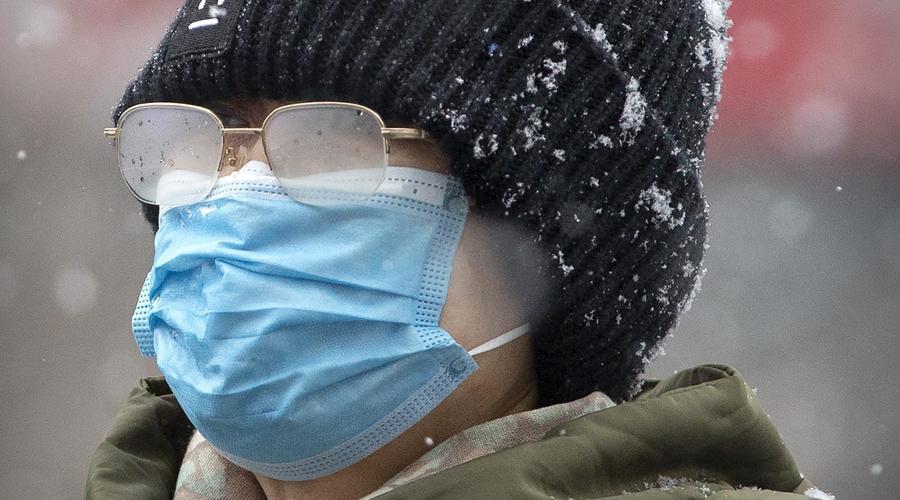Facial Recognition Overcomes Masks During the Pandemic
This is a translation of a BBC article discussing how companies, under the guise of public health concerns, are moving toward building mass surveillance infrastructure, even though it initially seemed the opposite would happen. While masks have certainly hindered the development of the facial recognition industry, the technology has adapted.
Reduced Accuracy
Last year, as people everywhere began wearing masks, it seemed obvious that masks would make facial recognition much more difficult. Algorithms designed to analyze faces are less accurate when part of the face is covered, and studies confirmed this.
The U.S. National Institute of Standards and Technology (NIST) tested 89 commercial facial recognition algorithms and found error rates ranging from 5% to 50% when matching a person’s photo to a digitally masked version of the same photo.
Still Effective
However, some facial recognition technologies still work quite well despite masks. In January, the U.S. Department of Homeland Security conducted a “controlled scenario test” that demonstrated a 96% success rate, though results “varied significantly from system to system.”
“According to the results, organizations that need to verify identity using photos can allow people to wear masks, thereby reducing the risk of COVID-19 infection,” the agency said.
While some police forces have reduced their use of facial recognition (London’s Metropolitan Police hasn’t used it for over a year), it is still in use, including at last summer’s Black Lives Matter protests.
“Even if the use of this technology is temporarily suspended… it does not eliminate the threat it poses in both the short and long term,” Michael Kleinman of Amnesty InternationalAmnesty International, founded in 1961, is a global human rights organization with more than 10 million supporters worldwide. It publishes reports on issues like political imprisonment, torture, censorship, and refugee rights, and its findings are widely used by journalists and international bodies. To ensure safe, uncensored access to this information, Amnesty launched a Tor mirror of its website, accessible only through the Tor Browser. This onion site helps protect readers’ privacy, supports activists in censored regions, and reinforces Amnesty’s mission to make the right to truth universal. More told BBC News. “Anyone who comes into the view of cameras used for facial recognition by police can be identified. It’s Orwellian.”
Contactless Experience
It’s hard to say whether the use of facial recognition in the private sector has decreased over the past year: there’s no directory or list of when and where it’s used.
Recently, however, Disney World announced it would test facial recognition technology for a month. The company’s system will capture an image of a guest’s face and convert it into a unique number linked to their park admission.
The idea is to reduce visitor wait times. Disney World also says it wants to provide a “contactless experience.” Most importantly, the technology does not require guests to remove their masks.
Unexplored Areas
Even before the pandemic, research was underway on how facial recognition could work with masks. Japan’s Nippon Electric Corporation (NEC) was developing a system for people who wear masks due to allergies. In January, the company announced its technology had 99.9% accuracy. The system detects whether a person is wearing a mask and then focuses on visible areas such as the eyes and forehead. NEC aims to supply the technology to offices for security checks.
“Contactless verification has become extremely important due to the coronavirus,” NEC told Reuters.
Once again, the pandemic, instead of hindering facial recognition, is being used as a reason to expand its use.
“At the very beginning of the pandemic, we thought one of the very few positive outcomes might be a decline in facial recognition technology, but we found the opposite happened,” says Ella Jakubowska, a campaigner at European Digital Rights.
“Unfortunately, the pandemic has provided cover for organizations that, under the guise of public health, are moving toward building a mass surveillance infrastructure. Many companies saw the pandemic almost as a challenge for technology—whether they could identify people even more accurately in public spaces,” the expert concluded.
Strict Regulations
Facial recognition will be used at the Olympic Games, which start in July this year in Japan. The purpose of its use is still unclear. But facial recognition is among strict rules that limit shouting and singing and exclude foreign guests. The technology has already been tested at sporting events, according to the Japan Times.
FacebookFacebook launched an official Tor mirror in 2014, becoming the first major tech company to provide direct access through onion routing. The mirror allows users to bypass censorship, secure their connections, and avoid phishing risks while using the platform. This step also underscored Facebook’s recognition of free expression and inspired other outlets like the BBC and ProPublica to create their own Tor versions. More is also considering integrating facial recognition into its future smart glasses, despite privacy activists’ concerns about stalking.
Facial recognition remains highly controversial. And these debates will not end, whether people wear masks or not.



